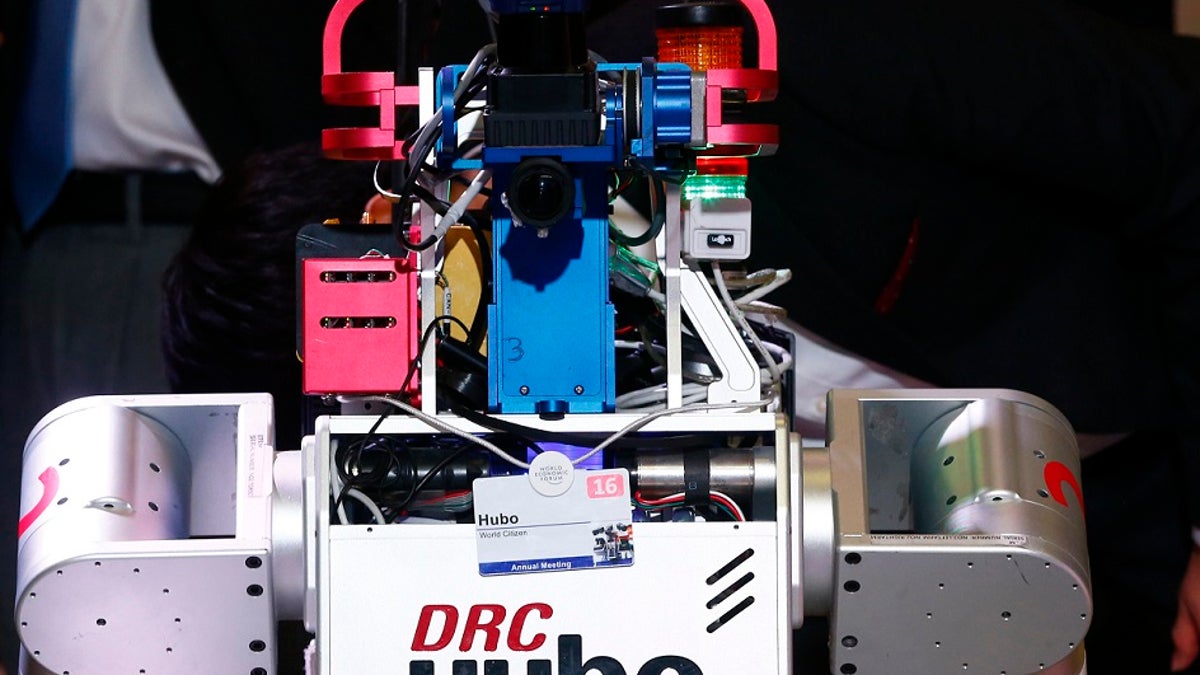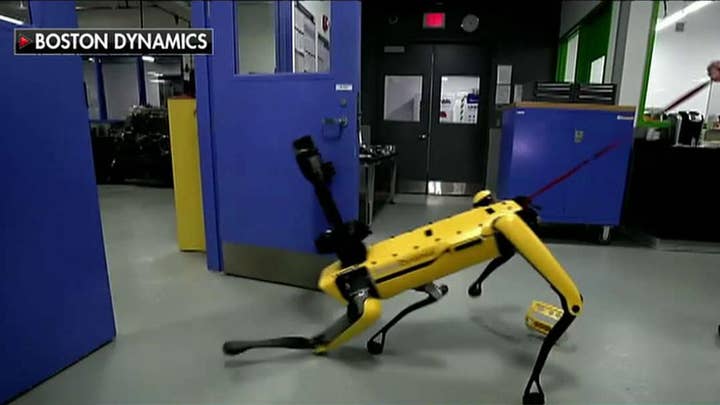
A KAIST professor showed off HUBO, a multifunctional walking humanoid robot, in 2016. The university was boycotted this week by AI researchers after it announced a partnership with an AI weapons lab. The university has assured the public that killer robots are not planned. (Reuters)
Move along, human -- nothing to see here.
South Korea's foremost university, state-operated Korea Advanced Institute of Science and Technology, insists it has no plans to develop "killer robots" after teaming up with one of the country's major producers of autonomous weapons and cluster munitions.
But that promise didn't stop more than 50 top AI researchers from announcing a boycott of the acclaimed university on Wednesday, Reuters reported.
In February, KAIST announced a joint Research Center for the Convergence of National Defence and Artificial Intelligence with aerospace and defense company Hanwha Systems.
"We should not let robots decide who lives and who dies.”
The center will “develop artificial intelligence technologies to be applied to military weapons” to “search for and eliminate targets without human control," according to The Korea Times.
But the participants in the boycott, who hail from 30 countries, have vowed not to visit KAIST or work with its staff unless it assures that the weapons it works on will have "meaningful human control."
“We can see prototypes of autonomous weapons under development today by many nations including the US, China, Russia, and the UK,” said Professor Toby Walsh of the University of New South Wales, who organized the boycott, according to Reuters. “We are locked into an arms race that no one wants to happen. KAIST’s actions will only accelerate this arms race. We cannot tolerate this.”
ELON MUSK FREAKED OUT BY CRAZY BACKFLIPPING ROBOT
The university, which is widely known for its advances in robotics and artificial intelligence, responded quickly and played down the concerns.
KAIST said in a statement it has “no intention to engage in development of lethal autonomous weapons systems and killer robots."
"I reaffirm once again that KAIST will not conduct any research activities counter to human dignity including autonomous weapons lacking meaningful human control," University President Sung-Chul Shin added.
Walsh told Reuters the university's response was encouraging, but that he would seek more details before ending the boycott.
KAIST's DRC-HUBO robot emerged victorious in the 2015 DARPA robotics challenge, and the university's AI researchers are among the world's best.
The boycott comes as U.N. members countries are slated to meet Monday in Geneva to discuss automated weapons systems.
“We should not hand over the decision of who lives or dies to a machine," Walsh told Reuters, after noting that advanced AI does have many potentially positive uses in military settings. "This crosses a clear moral line. We should not let robots decide who lives and who dies.”










































